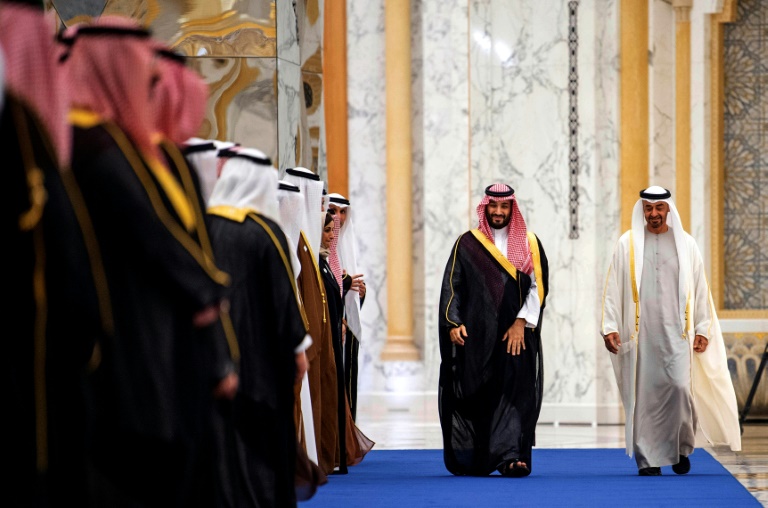
The war in Ukraine confirms the liberation of the Gulf states from Washington
Russia’s invasion of Ukraine has exposed once-unimaginable divisions between Washington and two key Gulf allies, Saudi Arabia and the United Arab Emirates, two oil giants that are increasingly independent on the international stage.
Members of the Organization of the Petroleum Exporting Countries (OPEC), which have supported Washington for decades, have refrained from supporting President Joe Biden’s administration in its efforts to stifle Moscow from energy-to-food diplomacy.
“(The UAE) should not be seen as a puppet of the United States,” Abdul Khaleq Abdullah, a professor of political science in the country, told CNN on March 3.
He added, “We must act according to our priorities (…)”, stressing “very good relations with America.”
For analysts, this new position of the Gulf states, which comes after several controversies in recent years – including the murder of journalist Jamal Khashoggi by Saudi commandos in Istanbul in 2018 – is a turning point in relations with Washington, for a long time the “protector” of these countries , especially towards Iran.
– Protective oil –
“This is certainly an important stage in the relations between the Gulf and the United States,” Anne Gadel, a regular contributor to the Montaigne Institute for Gulf States, told AFP.
According to her, the Gulf states “realize that they have to prepare for a different Middle East, and that the balance of power is changing in general” at the global level.
The UAE, which currently holds the presidency of the United Nations Security Council, refused to vote in February in favor of a US-Albanian draft resolution condemning the invasion of Ukraine.
The conflict has driven up energy costs but the Gulf states are currently resisting Western pressure to increase oil production to bring down prices.
The Saudis thus confirmed their commitment to the OPEC + oil alliance, led by Moscow and Riyadh. On Thursday, the UAE renewed its respect for the commitments it made in this context, a day after the statements of its ambassador in Washington in favor of increasing production.
The US president and Saudi Crown Prince Mohammed bin Salman, the kingdom’s de facto ruler, have not spoken since taking office, as Joe Biden vowed to treat the kingdom as a “pariah” country after Khashoggi’s murder. Attributed to Mohammed bin Salman by the CIA.
The US alliance with Saudi Arabia, and then with neighboring kingdoms, dates back to 1945, based on the “oil-for-protection” deal.
In the region, the Gulf states, which host American and foreign forces and bases, have long been considered puppets of the Americans.
This situation began to change in 2011, when the Arab Spring marginalized traditional Arab powers such as Egypt and Syria, allowing the Gulf states, seen as stable and prosperous, to play a greater role in the regional landscape.
– frustration –
Saudi Arabia and the UAE are currently battling Iranian-backed Houthi rebels in Yemen, and have strengthened ties with Russia and China. The UAE has also normalized its relations with Israel.
Many frustrations have strained relations with Washington, notably Mr. Biden’s openness to Iran or the US’s refusal to describe the Houthis as “terrorists.”
But the security issue is at the core of the problem with the absence of a strong American response after the attack on Saudi oil facilities in 2019, and Washington’s stated desire to reduce its military commitments in the Middle East.
Hussein Ibish, of the Arab States Institute in the Gulf in Washington, estimates that “the Gulf states (…) are no longer willing to rely on the United States as the ultimate guarantor of regional security.”
Even “if the United States remains a leading strategic partner,” these countries want to “diversify their diplomatic options.”

“Hipster-friendly coffee fanatic. Subtly charming bacon advocate. Friend of animals everywhere.”





More Stories
He is the “Hitler of our time.”
Woke Agenda: Infuriates Elon Musk, Burns Politicians, Targets the Secret Service
Panic after steam explosion in Yellowstone Park